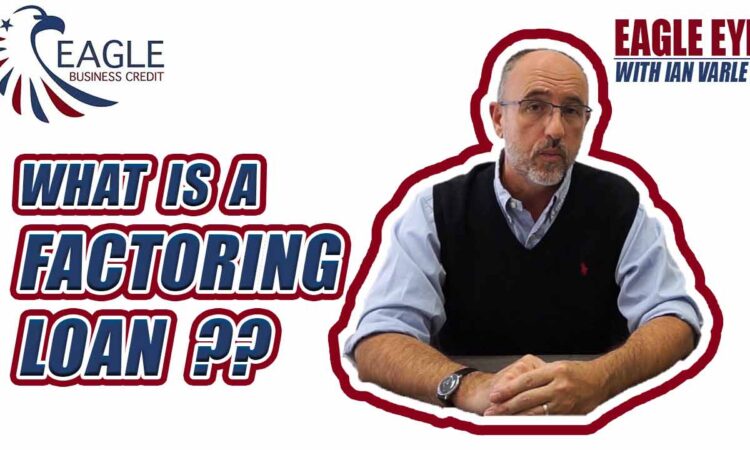If you have searched for online loans to support your small business, you have probably come across a “factoring loan.” It is a bit of a misnomer, since factoring is not a loan. Factoring, short for invoice factoring, is a funding method that pays your business immediately for your open invoices. In other words, you sell your invoices at a 1% to 4% discount to a factoring company, and the factoring company pays you for them immediately.
Eagle Eye: What Is a Factoring Loan?
Transcript Below:
Hi I’m Ian Varley CEO of Eagle Business Credit and welcome to Eagle Eye. You may be looking for a small business loan for your business . You may have come across the term factoring loans. Let’s take a minute and explain what factoring is.
What Is Factoring?
Essentially any company selling to another business that has accounts receivable selling on credit terms will have a need for funding. Factoring is a way of releasing the cash flow that’s tied up in your outstanding receivables. You continue to make sales to your customers. In the normal course of events, you issue your invoice, and wait for your customer to pay. Instead of waiting to get paid by your customer in accordance with your credit terms, a factor will release that cash and give you an advance on your invoices. So it’s a revolving form of finance that’s particularly linked to your receivables.

Is Factoring a Loan?
It’s actually not a loan. The factor will be repaid by your customer. So, you give the factor your invoice. They advance up to usually 90% of the value of that invoice. The customer then pays the factoring company (repaying the factoring advance). Then, you get the 10% (unadvanced portion) when the customer pays the factor. The factor will typically take their fee, which is usually a nominal amount out of the value of the reserve payment (payment from the customer) when received.

So again it’s an inexpensive form of finance, but it’s not a loan. You don’t incur debt that you have to make a repayment on as you would with a traditional loan. There’s no weekly or monthly amount that’s due to the factor. The factor will make advances on all new sales that you make, collect on those invoices. Then the factor continues to roll the money for you in that way as you make more sales. So, it’s a great way of financing. It works with growing businesses and also ones where you have a lot of money tied up in outstanding receivables. Again, it’s better than a loan because you the business owner are not going to make repayments to the factor, your customer is.

